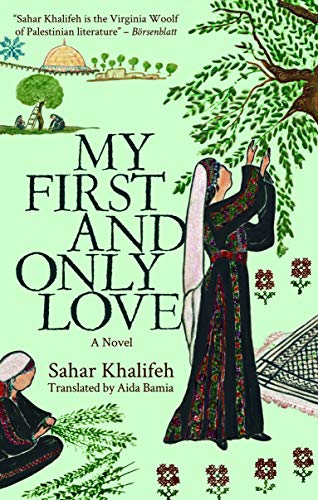My First and Only Love
The narrator, Nidal (whose name in Arabic means “struggle”), returns to Nablus in Palestine in the early 21st century, after decades of exile during which she became an internationally respected artist. Depictions of her restoration of the wrecked family home which, over time, was used for various shadowy purposes, are interspersed with the revolution of her childhood and teenaged years. Through all runs her love for the revolutionary youth, Rabie. Because of the war, they cannot be together, and that loss colors her emotions henceforth. As she works on her house in 2000, the Second Uprising interrupts progress. Then Rabie, now in his 70s and having lived his own successful life in exile, reappears. Talking about Nidal’s mother’s revolutionary lover as well as themselves, Rabie says, “We loved very much during that time. It was a time of love… We were dreamers.”
At first I wished for a map, an historical note, and a glossary of Arabic terms, but those soon ceased to be a necessity. This is an epic novel, and if lacking details, the reader can look up the history of the Palestinian-Israeli conflict. Nidal’s memoir is the emotional story of the wars and their personal cost, heroism, defeat, and hope: an ongoing conflict not yet peacefully resolved. We’re drawn in by her description of her family, the revolutionaries, the effects of the British Mandate and tensions with the Jews, and her own compelling perspective. Her Uncle Amin was a writer, and as she reads his unpublished memoir, she understands much that in her girlhood escaped her, gaining a larger sense of her family’s lives and fates. Khalifeh’s vivid style, in translation, vividly creates a multi-dimensional history. Recommended.










